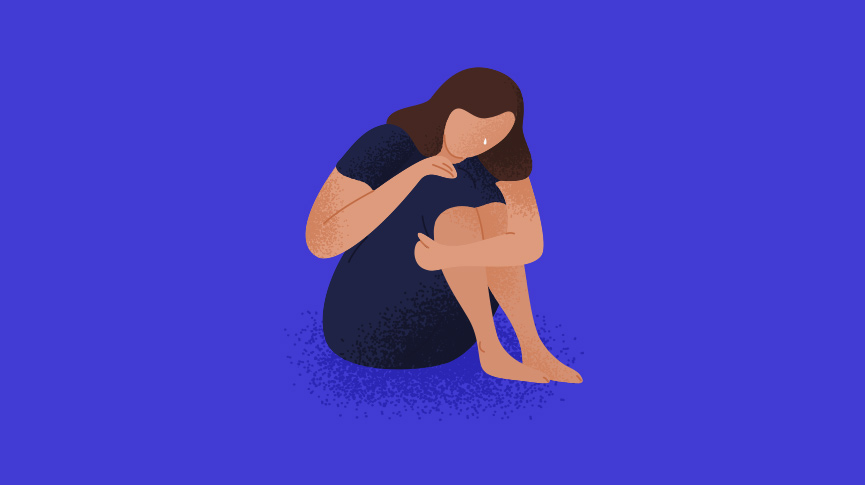You’re One Tough Mother – Understanding the Trauma of Miscarriage

Miscarriage – the word alone is painful to hear, and the experience can feel almost impossible to survive. You’ve lovingly prepared your body to grow new life, and seemingly in an instant, your future family feels stolen away.
The pain, confusion, and depression that can come after miscarrying make it difficult not to place blame on yourself, but in reality, there’s nothing that can really be done to prevent a spontaneous termination.
From a scientific standpoint, miscarriage is a sad but all-too-common risk we take during the conception process. Although cold, hard scientific facts aren’t exactly a cure-all for recovery, it’s comforting to understand that you’re far from alone in your trauma, and this difficult experience is all a part of our biological processes.
It’s More Common Than You Think
For a miscarriage to occur, the pregnancy must end on its’ own within the first 20 weeks of gestation. For humans, around 10% to 25% of known pregnancies end spontaneously within the first trimester. Many end so early – around the 9 week mark – that women are completely unaware that they’re pregnant until the body begins to cramp and bleed in preparation to expel the fetus.
There’s Little You Can Do to Prevent It
Miscarriage is simply one of the many risks associated with pregnancy. Even the most perfectly planned pregnancies full of pre-natal vitamins, healthy eating, and better-safe-then-sorry living practices can’t always prevent a fetus from passing away in the womb.
Miscarrying is nature’s way – however saddening – to keep the gene pool thriving. Most miscarriages are related to abnormalities in the fetus’s chromosomes, which are the structures inside our cells that contain genetic material. When our bodies detect that our fetus has little chance of growing up to be a normally-functioning human, nature takes its’ course and mercifully ends this tiny life before it can feel the pain and suffering of dying later in life.
Age can also play a role. Mothers are twice as likely to miscarry between ages 35 and 39, with a whopping 20% chance of losing the child. Past age 40, this rate skyrockets again to 40%, and increases to 80% at age 45. Although you shouldn’t miss out on the awesome potential to be a parent based on age alone, it’s a possibility that’s essential to consider as you plan your future.
When miscarriages are the rare fault of the mother, it is usually in extreme cases, such as with alcohol and drug abuse while pregnant. Even if you don’t miscarry, toxic substances can cause serious birth defects, so it’s always best to just avoid smoking cigarettes, drinking alcohol, and using drugs for the safety of your child.
If You’ve Miscarried Once, It’s Unlikely to Happen Again
The good news is that a miscarriage, regardless of whether it’s your first pregnancy, isn’t likely to plague your entire child-bearing life. In fact, less than 5% of women who’ve miscarried will consecutively lose another child in-utero, and only 1% will experience three or more losses.
It’s completely safe to begin trying for another baby as soon as you’re emotionally ready. Although your body is ready to conceive immediately after, you might not be in the right mindset until you’ve found peace and healing, and that’s perfectly natural.
Just Remember – It’s Your Experience & No One Else’s Business
The emotions surrounding miscarriage are unique to every woman, and there’s no reason to feel like yours aren’t valid. It’s easy for outsiders to try to frame your experience or place blame where it doesn’t belong. It’s important to remember that however you’re holding up afterwards, you’ve survived very real mental and physical trauma, and it’s not up to strangers or even family and friends to tell you how to feel.
For excited moms-to-be, miscarrying the child you’ve meticulously planned for and daydreamed about can feel like the end of the world. And why wouldn’t it?
You owe it yourself to grieve, take time away from work or obligations, and seek professional counseling if you feel like you’re going off the deep end.
By complete contrast, a miscarriage can feel like a relief or blessing in disguise if you weren’t ready to have a child, or were even considering abortion at one point. Similarly, there’s no reason to send yourself into a downward guilt trip if miscarrying didn’t wreck your emotional state.
In Conclusion
No matter the how, why, or when, miscarriage is a fact of all animal life; it might not feel natural, but it doesn’t make you abnormal. Miscarrying can take a heavy toll on your mind and body, but it doesn’t have to steal your chance at a happy future, with or without children. Grow and learn through the pain, heal at your own pace, and then emerge from the ashes like the mighty phoenix woman you’ve always been.
If you know you were meant to be a mom, we know you’ll find a way.

Colleen Godin is a sexual wellness writer and journalist. She operates a one-woman business at ThePleasureConnection.net, specializing in copywriting, marketing and events for the greater pleasure industry. In her spare time, she enjoys disappearing into the forest, finding herself in a great song, and long drives during spontaneous road trips.


